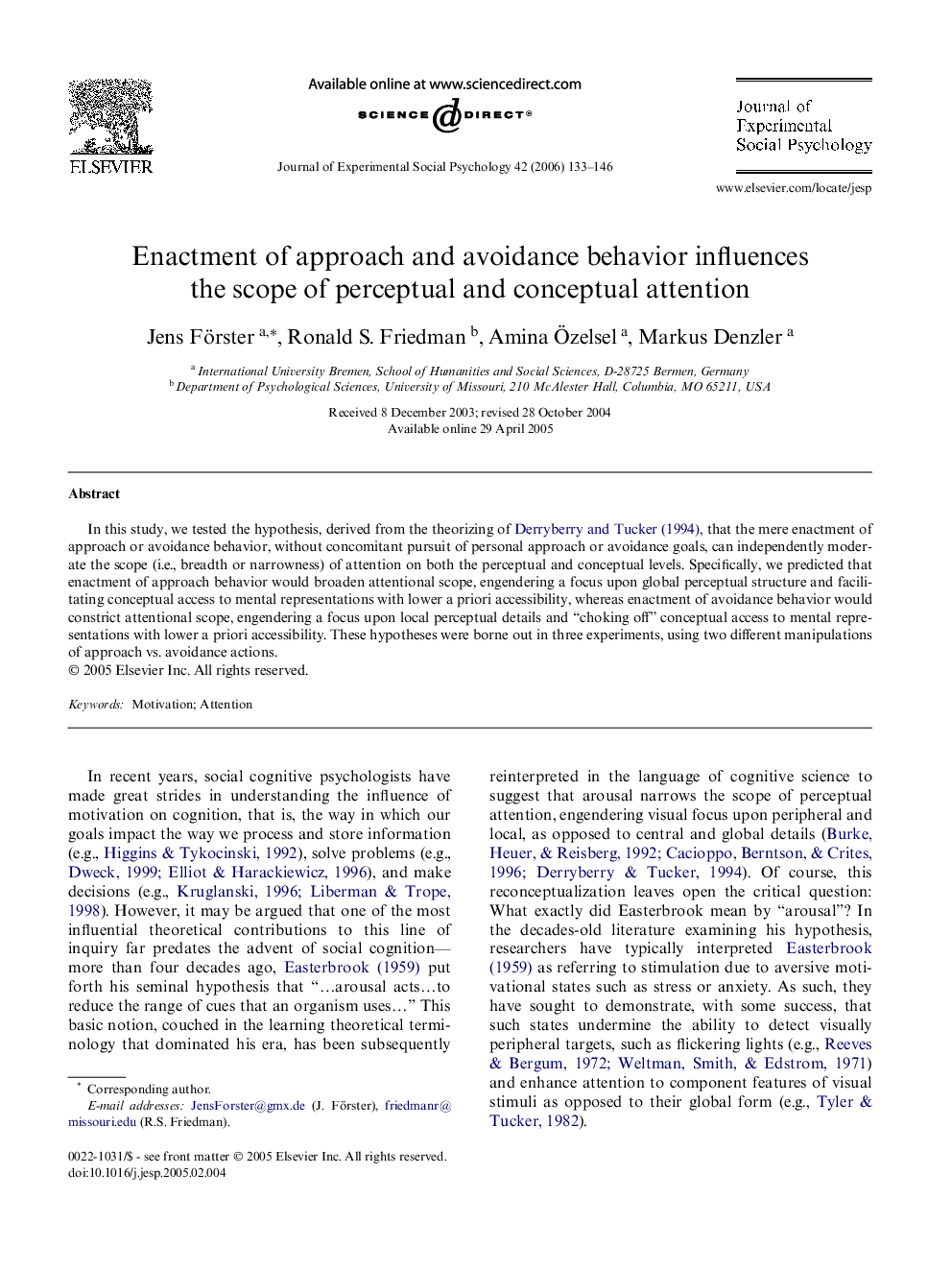| Article ID | Journal | Published Year | Pages | File Type |
|---|---|---|---|---|
| 948817 | Journal of Experimental Social Psychology | 2006 | 14 Pages |
In this study, we tested the hypothesis, derived from the theorizing of Derryberry and Tucker (1994), that the mere enactment of approach or avoidance behavior, without concomitant pursuit of personal approach or avoidance goals, can independently moderate the scope (i.e., breadth or narrowness) of attention on both the perceptual and conceptual levels. Specifically, we predicted that enactment of approach behavior would broaden attentional scope, engendering a focus upon global perceptual structure and facilitating conceptual access to mental representations with lower a priori accessibility, whereas enactment of avoidance behavior would constrict attentional scope, engendering a focus upon local perceptual details and “choking off” conceptual access to mental representations with lower a priori accessibility. These hypotheses were borne out in three experiments, using two different manipulations of approach vs. avoidance actions.
